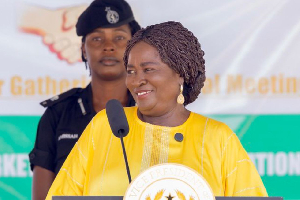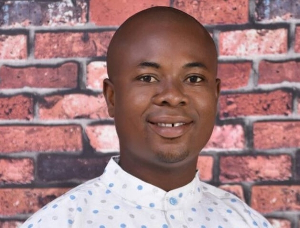Plan International, a non-governmental organisation that advocates for the development of girls, has mobilised survivors of child marriage across the African Continent to fight against the menace and save more victims.
Plan International took the initiative in collaboration with the United Nations and UNICEF to enable the girls to share their plight the four-day Girls’ Summit against Child Marriage, the second to be organised in Accra.
The summit was graced by Mrs Rebecca Akufo Addo, the First Lady, Mrs Samira Bawumia, the wife of the Vice President, Mrs Cynthia Morrison, the Minister of Gender, Children and Social Protection, and other dignitaries from across the Continent including the first ladies of Sierra Leone, Niger and Cote d’Ivoire.
Mr Solomon TesfaMariam, the Country Director of Plan Ghana, in a panel discussion at the Summit, said Plan International mobilised the survivors for a positive change because it believed in advocating for the right, justice and gender equality of girls.
“We work across the Continent, especially at the community levels, because we are well aware that in cases of child marriage, usually, the girls don’t have a say,” he said.
Mr TesfaMariam advised advocates against child marriage to engage religious leaders, parents and children in seminars to enlighten them on the dangers of the practice.
“Lack of understanding of sexuality is causing a great challenge,” he said, and called for intensification of education worldwide to eradicate the menace.
Mrs Wembe, a child marriage survivor from Zimbabwe, sharing her story at the Summit, said she got pregnant out of curiosity and was forced to get married afterwards by family members who felt her condition was a disgrace to them.
“After getting pregnant, I was expelled from school, even though I was brilliant and felt like committing suicide,” she said.
Mrs Wembe noted that it was a taboo in Zimbabwe for a pregnant teenager to be allowed to attend school or go back to school after delivery, because it was believed she would influence the other female students to practice same.
She said that ruined her dreams and advised teenagers, especially girls, to abstain from sexual relations that would destroy their future aspirations, adding: “Love is not sex and sex is not love”.
Mr Morgan Kumwenda, a Traditional Leader with the title, “Chief Chamuka” from Zambia, urged all countries that practise child marriage to implement policies and initiate programmes to eradicate the practice.
He said in Zambia, such child marriage deterring steps included an order from the State for all citizens to register for a proper assessment to be done on the couple before marriage.
He noted that there were special centres established to punish sex perpetrators with state institutions empowered to break child marriages and enrol the children back in school.
However, Chief Chamuka said one limitation was the consensual sex age of 16 years in the Country’s Constitution that encouraged child sexual relations and teenage pregnancies.
He said the traditional leaders, together with other child development agencies, were going to advocate for an amendment of the Constitution to increase the consensual sex age to reduce the immoral and urged other affected countries to do same.
General News of Sunday, 25 November 2018
Source: ghananewsagency.org













